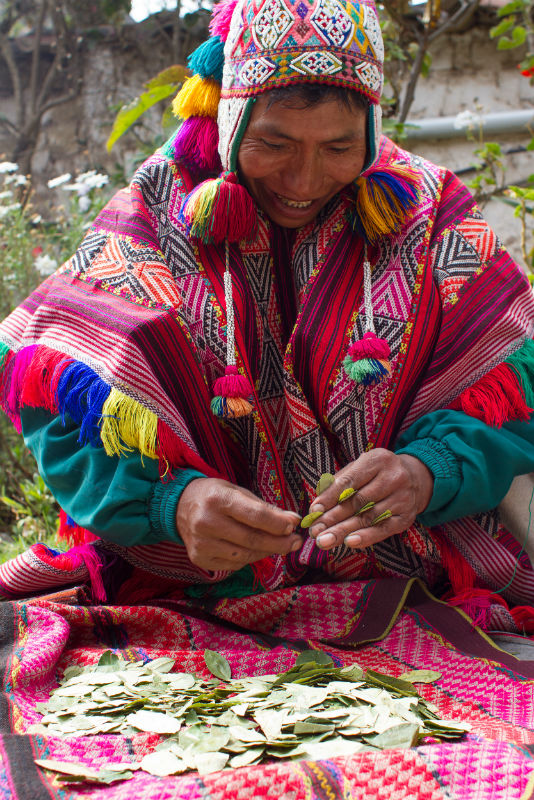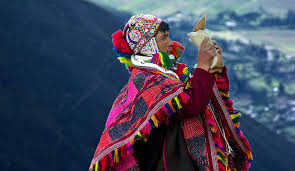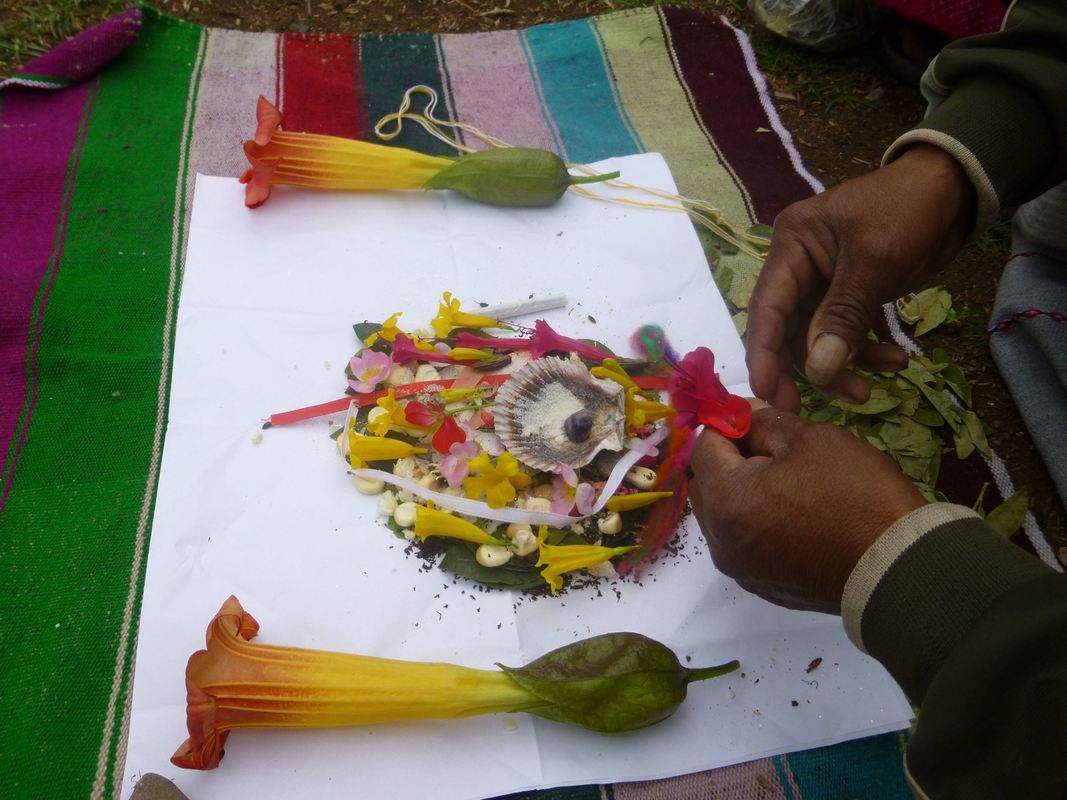|
Operating on “Peruvian time”
I always tell my fellow travellers, “You are on Peruvian time now!” Things don’t always go to plan or on time whilst you are in Peru so you have to learn to adjust your thinking and relax and ‘go with the flow’! In other words, when it comes to social events, the cultural norm is to arrive late. If you make plans to meet your new Peruvian friends for dinner at 7:30 p.m., chances are they will show up closer to 8 p.m. One important exception to Peruvian time is for official business or travel matters, such as a flights, bus departures, or tour schedules, and it’s best to show up on time!! Greetings In terms of greetings, people will shake hands upon meeting for the first time. When you get to know each other better, men will often pat each other on the back and women will kiss each other on one cheek. If you are a man meeting a woman for the first time, let the woman initiate the first greeting: She may offer her hand or approach for a cheek kiss. If you do not know someone really well or are first meeting them, you should address them by Señor, Señora or Señorita and their last name. Only close friends and family use first names, unless they ask you to call them by their first name. Professionals are addressed by their titles and last names. Communication When communicating, hand gestures are used profusely and the conversation can become very lively and animated, if the person really gets into something. People will stand close to each other and maintain strong eye contact Peru has three official languages: Spanish, Quechua and Aymara. You can get around speaking Spanish (especially in major cities such as Lima and Cuzco), as people will generally speak both Spanish and one native language. Spiritual beliefsThe spiritual beliefs of Peruvians, especially those of whom are raised in traditional Andean communities, have deep roots in Inca mythology. (Most Peruvians living in the Cities are catholic - modern Peruvian culture has a strong mix of Spanish colonial practices mixed with the recognition and pride of ancient local cultures and traditions) One example is the continuing reverence shown to high mountain peaks, which are considered sacred and believed to be the dwelling places of powerful spirits called Apus. Today people make offerings to the apus by gathering food, drink, coca leaves, and other plants as a symbol of gratitude for all that the spirits provide.Cusco, the former Inca capital, has twelve sacred Apus – one of which is Machu Picchu. Many travellers come to Peru to see these impressive Inca ruins but it’s important to remember that for locals, these are more than just ruins, they are sacred, historical places. Being environmentally friendly is not just common sense, it’s also a way to demonstrate cultural awareness and sensitivity. www.spiritofperuretreat.com  SHAMANS IN PERU Shamanism is an ancient healing tradition and moreover seen as a way of life. Shamanic teachings focus on our connection to nature and all of creation Peru has a long standing tradition of Shaman healers and priests and even though modern medicine was introduced into their culture many Peruvians continue to mix modern techniques with the ancient natural healing traditions of the Inca Shamans Who are the Q’ero Inca Shamans? At the highest altitudes in the Andes Mountains in Peru live a group of indigenous Indians called the Q’eros. They are the direct descendents of the ancient Inca people who were invaded by the Spanish Conquistadores in the 1500’s. During that time any of the Inca people were forced into labour in the gold and silver mines by the Spanish, but a few others escaped to the “villages in the clouds” in the refuge of the holy mountains (apus). These people survived and safe guarded much of the sacred knowledge keeping it intact over the centuries. The Q’eros have miraculously been able to preserve and orally pass on their sacred Inca traditions and ceremonies from one generation to the next. They have successfully been able to keep drawing on the wisdom of the advanced Incan societies that had previously flourished for 1000’s of years. They have also been able to continued developing these advanced techniques in healing, divination and ceremony and kept a strong connection with the spirits of their homeland INCA PROPHECY - TO BRING BACK BALANCE IN NATURE AND MOTHER EARTH In recent years the Inca Shamans (holy men and women, healers, priest and specialists in medicine) have seen their sacred mountain begin to melt. This was a sign from an ancient prophecy that they should come down from the mountain and share their wisdom with western civilisation. Mother Earth (Pachamama) was in dire need for people to know what to do to bring back the balance in nature and society that has rapidly deteriorated in the last Century. PACHAMAMA CEREMONY The Ceremony and Offering to Pachamama is the most important of all Andean rituals. When performed, we unify our life with Mother Earth, God and the Universal Order. We bring into order all aspects of our lives, from the physical, mental, spiritual and material, and in doing so achieve a high level of vitality, courage, wisdom and passion. This new state of being and happiness are shared with all those who surround us This offering gives thanks to Pachamama for our food, our health, our lives, and everything we have. It can also be used to release dense “hucha” energy which is no longer serving us. This ceremony is performed through the Shaman’s prayer and his pouch of sacred Andean offerings. All are symbolic of personal aspects such as protection of travel and relationships, success in our careers or chosen vocation in life and many more. The Shaman, will go over each offering and its significance in Andean culture before wrapping them all up to go into the offering. Once completed, the Shaman will tie up the bundle and use it to bless each participant before ceremonially burning it. This offering unifies our life with Pachamama, God and the Universal Order. We arrange all aspects of our lives and in doing so achieve a high level of vitality, courage, wisdom and passion. Our new order and happiness are shared with all those around us. |
AuthorKaren Archives
April 2019
Categories |
Spirit of Peru


 RSS Feed
RSS Feed